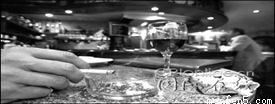题目内容
完形填空
阅读下面短文,从短文后各题所给的四个选项(A、B、C和D)中,选出可以填入空白处的最佳选项,并在答题卡上将该项涂黑。
After giving a talk at a high school, I was asked to pay a visit to a special student. An__________had kept the boy home, but he had expressed an interest in meeting me. I was told it would mean a great ____________ to him, so I agreed.
During the nine?mile drive to his home, I found out something about Matthew. He had muscular dystrophy(肌肉萎缩症). When he was born, the doctor told his parents that he would not live to five, and then they were told he would not___________it to ten. Now he was thirteen. He wanted to meet me___________I was a gold?medal power lifter, and I knew about____________obstacles and struggling to achieve my dreams.
I spent over an hour talking to Matthew. Never once did he ___________ or ask, “Why__________?” He spoke about winning and succeeding and achieving his dreams.____________, he knew what he was talking about. He didn't mention that his classmates had___________him because he was different. He just talked about his___________for the future, and how one day he wanted to lift weights with me.
When we had finished talking, I went to my briefcase and___________out the first gold medal I had won and put it around his___________. I told him he was more of a ___________ and knew more about success and conquering difficulties than I ever would. He looked at it for a moment, then took it__________and handed it back to me. He said, “You are a champion. You____________ that medal. Someday when I get to the Olympics and win my own medal, I will show it to you.” Last summer I received a ________ from Matthew's parents telling me that Matthew had___________away. They wanted me to have a letter he had written to me a few days before:
Dear Dick,
My mum said I should send you a thank?you letter for the picture you sent me. I also want to let you know that the doctors tell me that I don't have a__________time to live any more, but I still smile as much as I can.
I told you someday that I would go to the Olympics and win a gold medal, but I know now I will never get to do that.__________, I know I'm a champion, and God knows that too. When I get to Heaven, God will give me my____________and when you get there, I will show it to you. Thank you for loving me.
Your friend,
Matthew
1.A. order B. illness C. instruction D. idea
2.A. desire B. conscience C. deal D. intention
3.A. manage B. rid C. survive D. make
4.A. because B. until C. before D. though
5.A. overcoming B. overlooking C. overtaking D. overflowing
6.A. explain B. laugh C. panic D. complain
7.A. you B. us C. me D. it
8.A. Strangely B. Obviously C. Abruptly D. Occasionally
9.A. made use of B. made notes of C. made fun of D. made out of
10.A. hopes B. fears C. standards D. illusions
11.A. carried B. pulled C. sucked D. wiped
12.A. hand B. arm C. head D. neck
13.A. life?winner B. fortune?teller C. trouble?maker D. fate?challenger
14.A. in B. off C. out D. over
15.A. regained B. matched C. lost D. deserved
16.A. card B. gift C. prize D. letter
17.A. given B. passed C. faded D. run
18.A. ripe B. flexible C. long D. good
19.A. However B. But C. Thus D. Therefore
20.A. certificate B. opportunity C. picture D. medal



